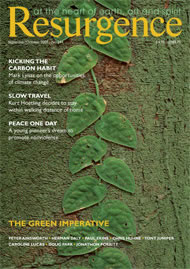“In the past there was a dry and wet season, with one short period of rain and then the much-needed long, heavy rains. Now the rains only come for a short time, if at all, and the dry season is extended,” says Ahmed Abahoo, an Afar pastoralist, herding his cattle into a thorny enclosure, as fiery winds whip up a storm, and a line of cows stride out of the sand haze.
Africa is getting hotter, with increased droughts and extreme weather patterns. “Communities where we work are reporting unusual climatic changes, beyond the customary variability,” John Magrath, Oxfam researcher, says. Recent Government reports on climate change predict that the continent’s temperatures are expected to rise doubly fast as in the rest of the world.
Pastoralists will be one of the groups of people greatly effected, even though compared to other land use systems, pastoralism is best adapted to unpredictable weather – they have developed a way of surviving, after centuries of eking out a living from the world’s harshest places.
The peripheral areas of Ethiopia, low lying and arid, with spiked acacias, volcanoes and open desert, surround the fertile central highlands. Covering 61% of the country, they are home to 8 million pastoralists from diverse ethnic groups: the four largest tribes are the Afar, Somali, Guji and Borana. Pastoralism is a livelihood, depending entirely on traditional animal rearing, when the availability of grass and water is lost to drought they have no alternative means of survival.
In response these tribes have cultivated coping mechanisms: when their provisions become scarce they simply move to another place. They also have strategies to share limited means, for example the Borana, have a traditional ‘Ga’ada’ system, functioning as a form of social welfare. “Unlike what people think, pastoralists protect the land from overgrazing, and subsequent desertification by their mobility,” Sally Crafter, FARM-Africa Ethiopia, says.
Ethiopia has the largest livestock population in Africa, livestock products being a valuable part of their economy. The enormity of the region’s livestock trade is masked by inaccurate figures that only count the legally-registered animals sold across the borders, ignoring the high numbers of contraband livestock, often traded by pastoralists.
Pastoralism is entering a critical period. Their life today suffers numerous threats on top of global warming. The expansion of sugar plantations onto Kerayou (a small group of pastoralists from the Awash region) and Afar land is one of the most serious difficulties facing them – huge expansions are planned this year, all along the rich Awash river plains, where pastoralists go for water. “We used to set aside areas where no grazing was allowed, preserving the land. Today we find it hard to do this. Our existing land is becoming narrower and narrower,” Haji Qasara, a Kerayou, says. Currently the Kerayou are trying to stop the Government expanding these plantations.
Matahara, an enormous Government owned sugar plantation in Awash, covers 14,733 hectares. “We are doubling in size. We will teach the Kerayou how to grow sugar so they can profit from the expansion,” Zewdu Negate, the manager says. Haji does not believe this, “When the sugar factory opened in 1965 we were told we would receive compensation but we still have not.”
Some Kerayou are employed as daily labourers on the plantations, but most of the workers are from other regions. Instead the Kerayou are being told to leave the land they have been grazing for generations. “We don’t know where we will go,” Haji says. Resettlement is a complex issue, often leading to conflict with other tribes. The Government actively tries to make pastoralists settle and become farmers, even though it does not work in the dry lowland. “If it doesn’t rain on your field you cannot move it, whereas cattle have legs. If it rains you can take them to water,” Murku Saliye, a Borana elder explains.
The vast, remote border areas where pastoralists live are lawless, with various rebel groups operating. In Somali’s Ogaden region the ONLF (Ogaden National Liberation Front) are at loggerheads with their highland rulers, wanting their own Somali state. The recent kidnappings in Danakil, catapulting the region to front-page news, were carried out by ARDUF (Afar Revolutionary Democratic Unity Front) who also want their own separate Afar land. Often those living in these periphery areas feel ignored by Government decisions and rise up in an attempt to be heard. “The peace and security implications of global warming are as serious as the environmental impact,” Hilary Benn says.
Beyond the reach of roads pastoralists receive little help, apart from food aid, which entrenches dependence. “We would prefer long term development,” Hussein says. Food aid is temporary, merely responding to an emergency, rather than providing assistance that lasts.
Pastoralism is changing because of the numerous pressures they face. “Now there is drought in all directions, we move less,” Idris Ali Igma, an Afar pastoralist explains. As pastoralists lose their cattle they are forced to travel to towns to find menial jobs, and settle. If pastoralism is to continue, they require support for their livelihood.
The Government crackdown on the illegal, yet prolific cross border trade in Somali, affects many people who rely on illicitly selling their livestock. Trading formally involves such heavy administration and taxation that contraband is seen as unavoidable. Ethiopia also has no sanitary control systems or standardised vaccinations, making trading difficult. “We need better regulations and veterinary care,” says Hassan Yusuf, a Somali trader.
Recently pastoralism has begun to receive political attention in Ethiopia, although there is still a long way to go. “Pastoralism inhabits a very dynamic environment. It requires a flexible approach, taking account of local needs,” Mohammed Abdella, Afar Pastoral Development Association, explains. Life is hard for pastoralists, they want the choice to continue their lifestyle, yet in a changing world, and with the impact of climate change they also need development. “We’re trying to adapt, but we cannot do this over night,” Idris concludes.







